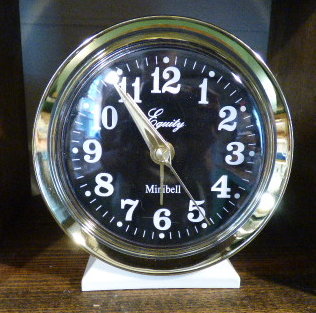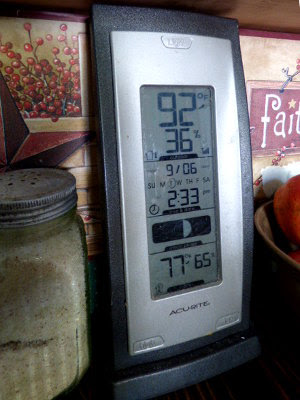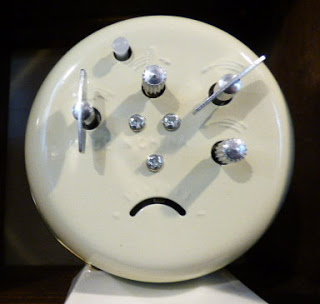

| Online: | |
| Visits: | |
| Stories: |

| Story Views | |
| Now: | |
| Last Hour: | |
| Last 24 Hours: | |
| Total: | |
Contemplations on Time
I recently bought something that has been on my nonelectric to-get list for awhile – a windup clock.
Even though electric clocks don't use much energy, I like that I don't have to plug it in, reset it every time we lose power, or buy batteries for it. To the frugal, every little bit helps. To the prepper, it's one more thing that doesn't eat into the stockpile of batteries.
I tried to find one locally but had no luck, so I turned to the internet. The first thing I noticed was that almost none of these clocks rate very well in consumer reviews. They average around three stars. Why? The biggest complaint seems to be that they don't keep time very well.
I found that to be somewhat amusing considering that most electric clocks tend to gain or lose time too. We have two plugin clocks and five battery clocks in the house. Even when all are set to the same time, it doesn't take long before none of them says the same thing. Heck, I used to have a computer that lost time. Every couple of months it lost about 10 minutes.
One of our clocks is an “atomic” clock.
It receives the time via radio signals from some super clock somewhere said to keep “real” time. It's the one we set our other clocks to, but I noticed the other day that it's two minutes different from my husband's cell phone, which also seems to receive the time from somewhere else. Which one is correct?
More to the point, does it really matter? Now, I suppose it would matter if I was one of those women who had my time schedule so fine-tuned that I could sleep an extra two minutes if I put my makeup on in the car on the way to work. But I'm not. My work day starts when it's light enough out to see without a flashlight, so I can let out the chickens and milk the goats. In my back-to-the-land days (eons ago) I lived for about two years with no other time piece than the sun. No one had a clock or a watch and didn't feel the need to have them. We got up when it was light, went to bed when it was dark, and did everything that needed to be done in between.
“Time is money.” We've all heard that. The question is, do we really believe it? Do you? I think that if money is our standard of value then we assume it's true. Personally, I think that's a very bad way to look at things and have written on the issue before. I won't repeat myself but will give you the links in case you're interested.
My observation is that day-to-day living seems to be frantically paced for most people. As Dan likes to say, where is everybody in such a hurry to go? I can't help but wonder if they notice that they never really get there. It's one of the biggest reasons we chose the homesteading lifestyle. We don't want to live that way.
Anyway, let's get back to my new windup clock and how well it keeps time. No need to get in a tizzy, because these old-style clocks have an adjustment for just that.
See the slot on at the bottom that looks like an emoticon's sad mouth? There's a little lever in there that can be moved to make the clock either faster or slower. With a bit of experimentation I was able to get it pretty much in sync with the atomic clock, as long as I remember to wind it regularly. My other option would have been to note how much time it gains or loses and simply adjust it everyday when I wind the clock. What could be simpler than that?
Source: http://www.5acresandadream.com/2016/09/contemplations-on-time.html






